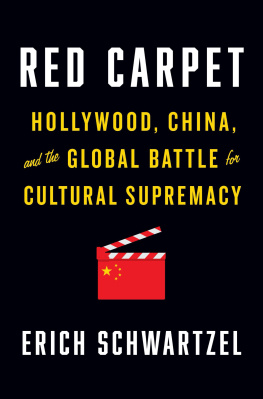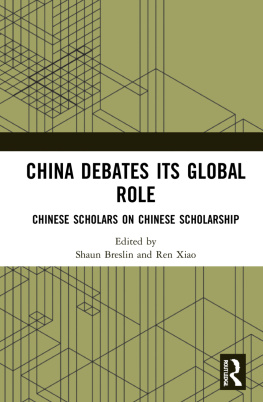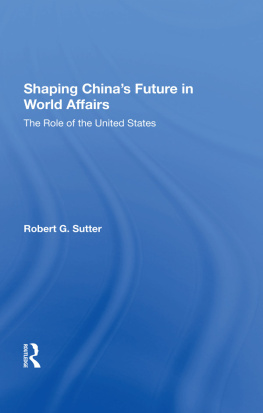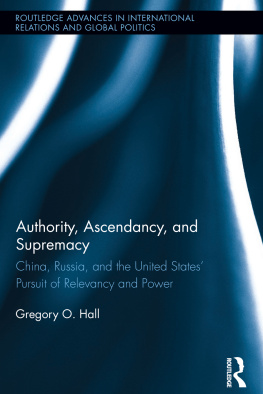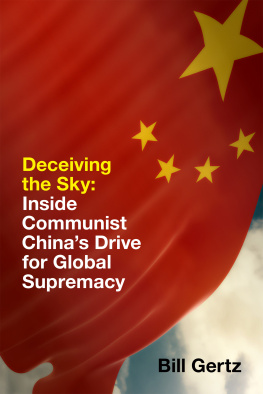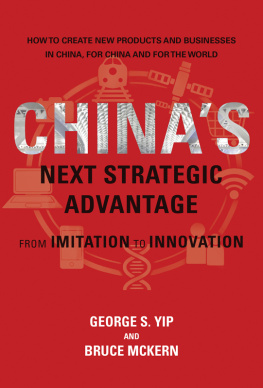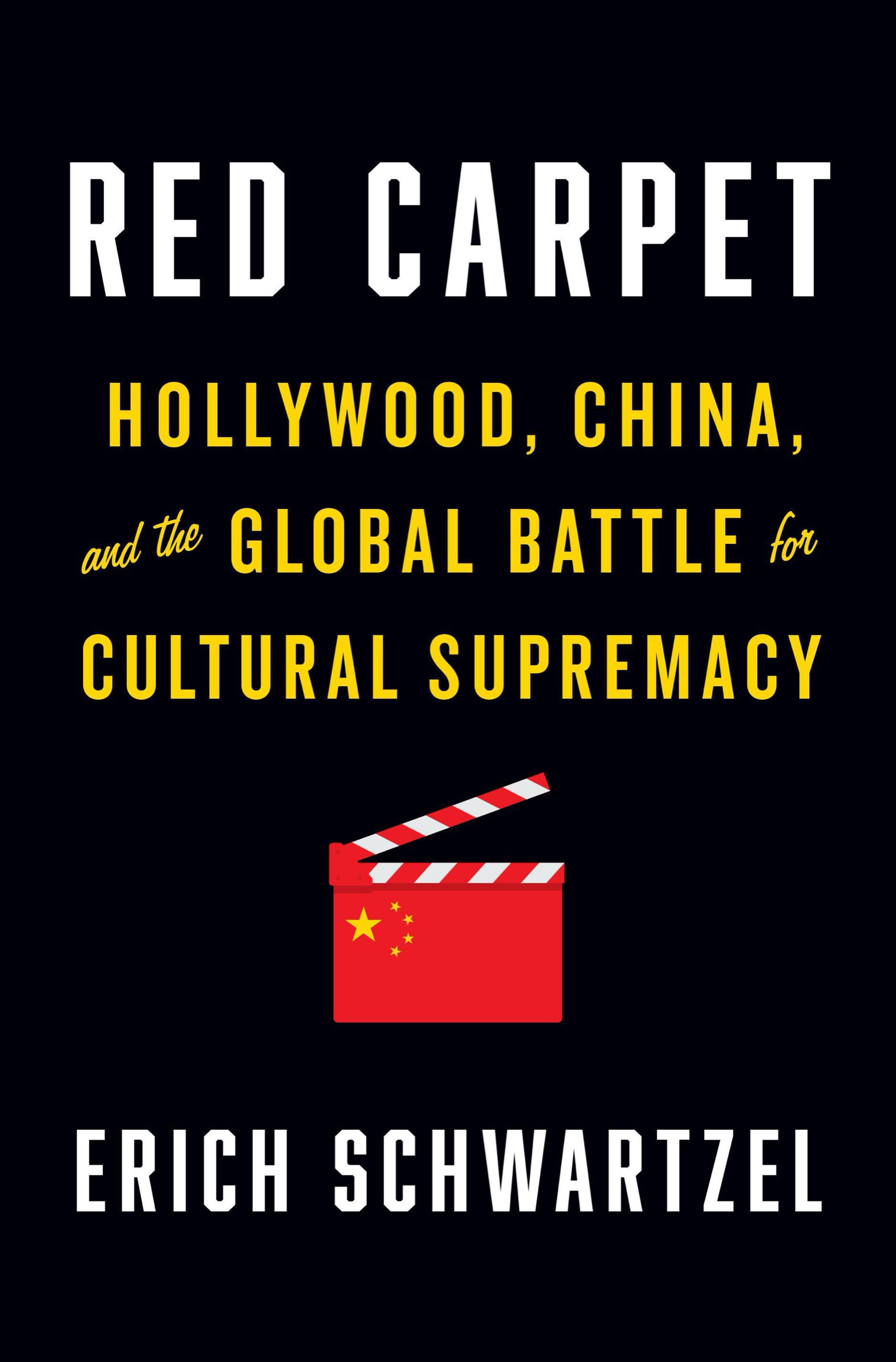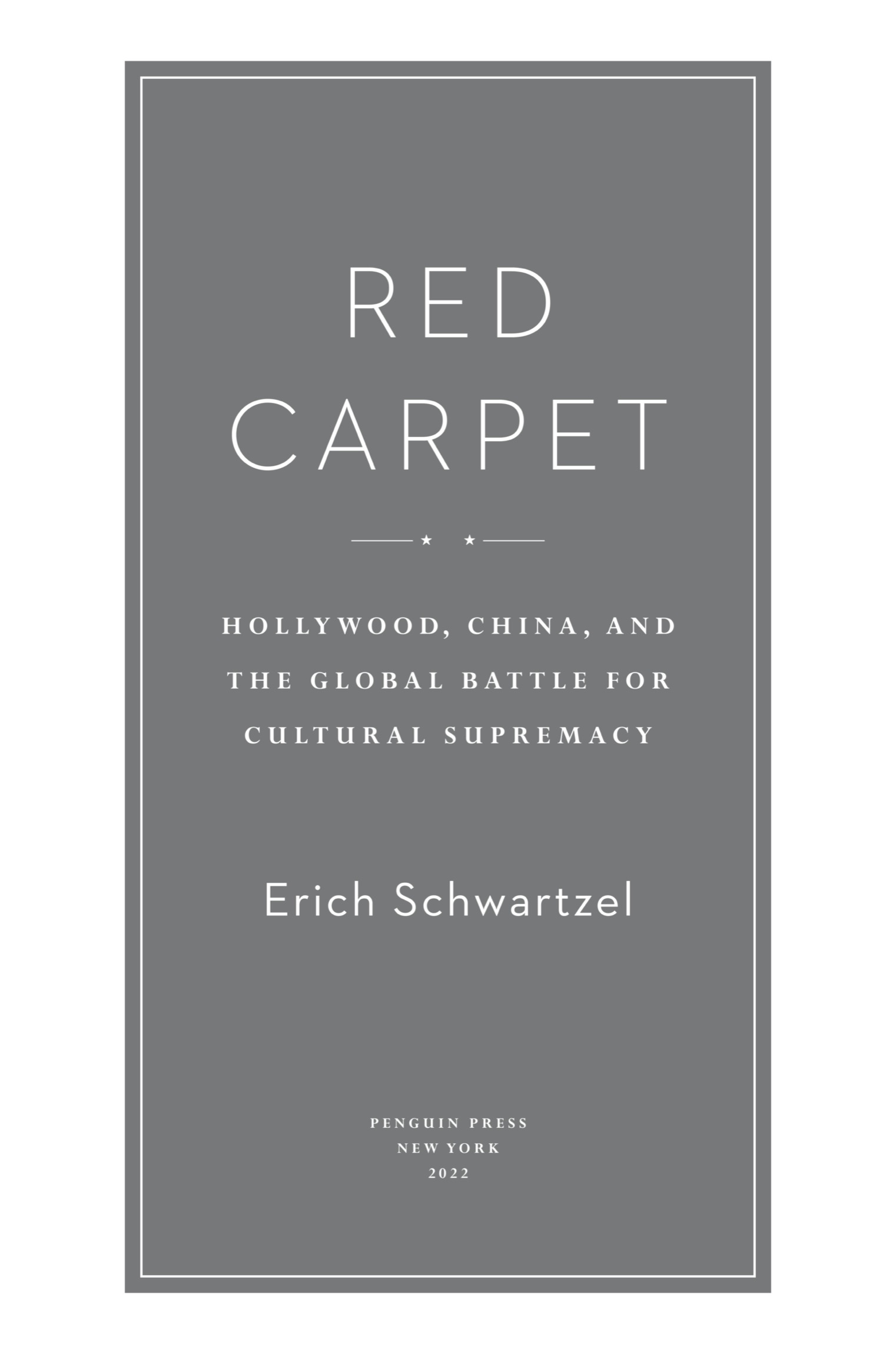Erich Schwartzel - Red Carpet: Hollywood, China, and the Global Battle for Cultural Supremacy
Here you can read online Erich Schwartzel - Red Carpet: Hollywood, China, and the Global Battle for Cultural Supremacy full text of the book (entire story) in english for free. Download pdf and epub, get meaning, cover and reviews about this ebook. year: 2022, publisher: Penguin Publishing Group, genre: Non-fiction. Description of the work, (preface) as well as reviews are available. Best literature library LitArk.com created for fans of good reading and offers a wide selection of genres:
Romance novel
Science fiction
Adventure
Detective
Science
History
Home and family
Prose
Art
Politics
Computer
Non-fiction
Religion
Business
Children
Humor
Choose a favorite category and find really read worthwhile books. Enjoy immersion in the world of imagination, feel the emotions of the characters or learn something new for yourself, make an fascinating discovery.
- Book:Red Carpet: Hollywood, China, and the Global Battle for Cultural Supremacy
- Author:
- Publisher:Penguin Publishing Group
- Genre:
- Year:2022
- Rating:5 / 5
- Favourites:Add to favourites
- Your mark:
Red Carpet: Hollywood, China, and the Global Battle for Cultural Supremacy: summary, description and annotation
We offer to read an annotation, description, summary or preface (depends on what the author of the book "Red Carpet: Hollywood, China, and the Global Battle for Cultural Supremacy" wrote himself). If you haven't found the necessary information about the book — write in the comments, we will try to find it.
In this highly entertaining but deeply disturbing book, Erich Schwartzel demonstrates the extent of our cultural thrall to China. His depiction of the craven characters, American and Chinese, who have enabled this situation represents a significant feat of investigative journalism. His narrative is about not merely the movie business, but the new world order. Andrew Solomon, author of Far from the Tree and The Noonday Demon
An eye-opening and deeply reported narrative that details the surprising role of the movie business in the high-stakes contest between the U.S. and China
From trade to technology to military might, competition between the United States and China dominates the foreign policy landscape. But this battle for global influence is also playing out in a strange and unexpected arena: the movies.
The film industry, Wall Street Journal reporter Erich Schwartzel explains, is the latest battleground in the tense and complex rivalry between these two world powers. In recent decades, as China has grown into a giant of the international economy, it has become a crucial source of revenue for the American film industry. Hollywood studios are now bending over backward to make movies that will appeal to Chinas citizensand gain approval from severe Communist Party censors. At the same time, and with Americas unwitting help, China has built its own film industry into an essential arm of its plan to export its national agenda to the rest of the world. The competition between these two movie businesses is a Cold War for this century, a clash that determines whether democratic or authoritarian values will be broadcast most powerfully around the world.
Red Carpet is packed with memorable characters who haveknowingly or otherwiseplayed key roles in this tangled industry web: not only A-list stars like Matt Damon, Angelina Jolie, and Richard Gere but also eccentric Chinese billionaires, zany expatriate filmmakers, and starlets who disappear from public life without explanation or trace. Schwartzel combines original reporting, political history, and show-biz intrigue in an exhilarating tour of global entertainment, from propaganda film sets in Beijing to the boardrooms of Hollywood studios to the living rooms in Kenya where families decide whether to watch an American or Chinese movie. Alarming, occasionally absurd, and wildly entertaining, Red Carpet will not only alter the way we watch movies but also offer essential new perspective on the power struggle of this century.
Erich Schwartzel: author's other books
Who wrote Red Carpet: Hollywood, China, and the Global Battle for Cultural Supremacy? Find out the surname, the name of the author of the book and a list of all author's works by series.

